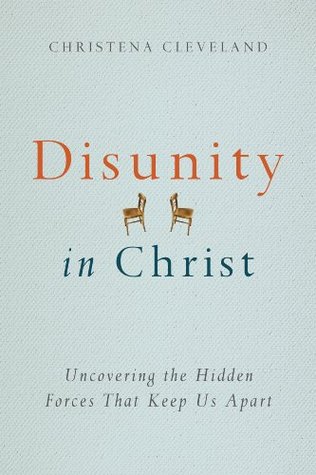More on this book
Community
Kindle Notes & Highlights
Read between
March 8 - March 28, 2020
Culture is our modus operandi—anyone tracking us can see the cultural fingerprints that mark our religious beliefs and practices, but we lack the awareness to see it ourselves. All the more reason to develop crosscultural relationships with people who don’t share our blind spots and can offer much-needed perspective on our culture.
Philosopher Charles Taylor tracked the ways that Christian faith perspectives changed over time and found that before the Renaissance, Christian truth (that is, the idea of religious truth as laid out by Thomas Aquinas, obviously) was primarily applied to the entire cosmos (physical, spiritual and social), with much less focus on individual subjective experience. The idea of Christian truth began to change, however, during the Renaissance with an emphasis on reason and the view of the individual as the interpreter and judge of knowledge. This cultural shift, combined with the fact that
...more
Rah devoted much of his book The Next Evangelicalism to discussing the ways in which Western culture and American Christianity have crisscrossed to the point of being indistinguishable.
Cultural psychologist Adam Cohen agrees that the stark individualism that plagues American society is probably hurting unity efforts in the worldwide church. Drawing from the apostle Paul’s writings in Romans 12 and 1 Corinthians 12, Cohen writes, “The one, universal, worldwide community of Christians (the Church) is intended to hold itself accountable to its individual members and committed to a communitarian understanding of its mission. Perhaps because of its preference for individualistic, [emotional] motives, American Protestantism has not fully developed its doctrine of the Church.”
Because culture and religion are so easily confused, many American Christians have automatically and unknowingly adopted a Western cultural viewpoint on Christian faith that significantly differs from other cultural viewpoints.
On the other hand, collectivism is common in Eastern cultures, focuses on the individual as inseparable from the social context, values external and public personal attributes, and emphasizes belongingness, fitting in, communal goals and indirect communication (e.g., “reading others’ minds” in order to anticipate their needs).
The Judism of Jesus was rooted in Eastern culture, whereas Christianity of Rome is rooted in Western culture.
The collectivist’s socially oriented faith includes the possibility of social guilt and requires that individuals who are connected to oppressors be responsible for sins of oppression. However, the individualist’s individual faith only knows individual guilt and is offended by the idea that one person can be held responsible for another person’s actions.
Pastors and leaders often launch diversity initiatives that are designed to attract minority participants, but when the minorities actually participate, all hell breaks loose.
Ultimately, the pastors and leaders throw their hands in the air and give up, saying that the challenges of diversity outweigh the benefits.
Research suggests that diversity initiatives are doomed to fail among Christian groups that idolize their cultural identities.
Until we relativize our cultural identities and adopt an inclusive group identity, our diversity initiatives are doomed to failure because we will never fully appreciate our diverse brothers and sisters and they will not feel appreciated.
At any rate, the conflict escalated to the point that it caused a major division within the early church. The pro-circumcision group was essentially telling the pro-private-parts group that they could not call themselves followers of Christ unless they underwent the procedure. Things were becoming hostile. This is a classic case of perceiving a realistic conflict when it fact it was simply a cultural threat. Due to this misperception, the conflict quickly escalated.
After a while, Peter finally stood up and reminded everyone of a couple of things. One, he reminded them that since they are not God, they don’t necessarily have the authority to create rules for other followers of Christ. And two, he invoked their common membership in a far more meaningful, far more powerful group: the group of people who have experienced Christ’s grace and have now devoted their lives to following in his gracious footsteps.
Allport recognized that homogeneity is never harmless and introduced contact theory as a way of bringing groups together in order to reduce prejudice. The idea is that if group separation causes inaccurate perceptions of other groups, negative emotions and discrimination (which I’ve shown in the preceding chapters), then under certain conditions, direct contact between members of different groups will reverse those inaccurate perceptions, negative emotions and discrimination.
Crosscultural contact has often been described as an exercise in error reduction.
Crosscultural contact based on contact theory has worked wonders to break down stubborn divisions between Protestants and Catholics in Northern Ireland, blacks and whites in postapartheid South Africa, and black and white students in US schools.
Crosscultural contact works its magic by (1) requiring people to see different group members as individuals, rather than nameless, faceless members of a cultural group, and (2) creating a context in which the two different groups are encouraged to form a common identity.
But before we get ahead of ourselves, I should mention that research on contact theory has shown that simple contact between groups does not necessarily improve attitudes toward the former outgroup.
The one-time “unity” event organized by well-intentioned Christians is a worthy idea but probably a step in the wrong direction because such events typically allow group divisions and inaccurate attitudes to go unchallenged.
The work of reconciliation is often excruciating because it is the work of the cross. If reconciliation work isn’t painful, I’d venture to say that it isn’t really reconciliation work.
As sociologists Michael Emerson and Christian Smith have discovered, many American Christians do not believe that the pursuit of crosscultural unity is particularly relevant to the faith that is expressed in their pulpits and small group meetings.


